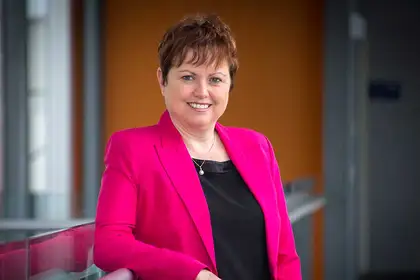
Jan Thomas.
By Jan Thomas
Earlier this month an “alt right” speaking event in Auckland was cancelled after Mayor Phil Goff made it clear that the two speakers, Lauren Southern and Stefan Molyneux, were not welcome and that the council would not provide a venue for “hate speech” by people who sought to abuse and insult others. While I support Mr Goff’s decision, it has kicked off a tide of controversy and has again raised the issue of what differentiates free speech from hate speech.
Issues such as this are increasingly common in New Zealand. Last year a group of high-profile New Zealanders put their names to a statement supporting free speech on New Zealand university campuses. The open letter warned that freedom of speech was under threat at our universities following the demise of a student group promoting white supremacist beliefs.
The recent debate that swirled around the proposed establishment of Māori wards in parts of New Zealand including Palmerston North and the Manawatū district – home to one of Massey University’s campuses – came dangerously close to hate speech, mobilised in large part by the Hobson’s Pledge network.
So, when does free speech become hate speech and why should universities care?
The right to speak freely is a bedrock principle of democratic society. This includes the right to hold opinions and express one’s views without fear and the ability to freely communicate one’s ideas. History is littered with examples of tyrants who have sought to stymie this freedom of expression and, conversely, reveals the tragedy of those whose voices have been silenced under such oppression.
Freedom of expression is one thing, but hate speech is another. As a concept that has now entered common parlance, hate speech refers to attacks based on race, ethnicity, religion, and increasingly, on sexual orientation or preference.
While hate speech is not a specific offence in New Zealand, the Human Rights Act 1993 includes provisions addressing civil and criminal liability in relation to encouraging racial dissonance or unrest. The Crimes Act 1961 also has provisions that can result in convictions and significant sentences if threats are made to harm or kill others or damage property. Further, the International Covenant on Civil and Political Rights, to which New Zealand is a signatory, states that advocating national, racial or religious hatred that constitutes incitement to discrimination, hostility or violence is legally prohibited.
Let me be clear, hate speech is not free speech. Moreover, as Moana Jackson has eloquently argued, free speech has, especially in colonial societies, long been mobilised as a vehicle for racist comments, judgements and practices. Hate speech is repugnant, or as one American legal academic has stated, hate speech is “a rape of human dignity”. Hate speech should be called out for what it is, especially when it incites violence against minorities.
Beyond the reach of the law, however, the battle against hate speech is fought most effectively through education and courageous leadership, rather than through suppression or legal censure. And this is where universities can take positive action by providing a venue for reasoned discussion and cogent argument. After all, the Education Act 1989 compels us to act as “critic and conscience” of society. This does not just mean protecting the values of academic freedom, it also means standing up for what is right. I do not see this is a zero-sum game aimed at limiting the right to free speech or the expression of differing or radical or even erroneous ideas.
Academics have a responsibility to engage with the communities we serve, to correct error and prejudice and to offer expert views, informed by evidence, reason and well-informed argument. Given the current dominance of wall-to-wall social media and the echo chambers of fake news, universities are in many ways obliged to make positive societal interventions. Universities support our staff and students to push boundaries, test the evidence that is put to them and challenge societal norms, including examining controversial and unpopular ideas. This also obliges our institutions to support staff if and when they are attacked for engaging in such debates.
In this regard, I am guided by the University of California’s former President Clark Kerr’s oft-cited maxim that “the role of universities is not to make ideas safe for students, but to make students safe for ideas”.
And as I regularly remind our graduates, with rights come responsibilities. Public universities have an obligation to uphold our civic leadership role in society and our first responsibility, I would argue, is to do no harm. Universities are characterised by the academic values of tolerance, civility, and respect for human dignity. And that is why it is important to identify and call out any shift from free speech towards hate speech. The challenge we face is to clarify when that shift occurs and to counter it with reason and compassion.
Hate speech has no place at a university. My university values our commitment to ideas and scholarship and free expression. Te Tiriti o Waitangi is at the centre of our university strategy, emphasising the importance of positive national leadership and supporting fundamental human values alongside academic ones. This is where Te Tiriti, with its emphasis on partnership, respect and tolerance, has much to teach us all.
Professor Jan Thomas is Vice-Chancellor of Massey University